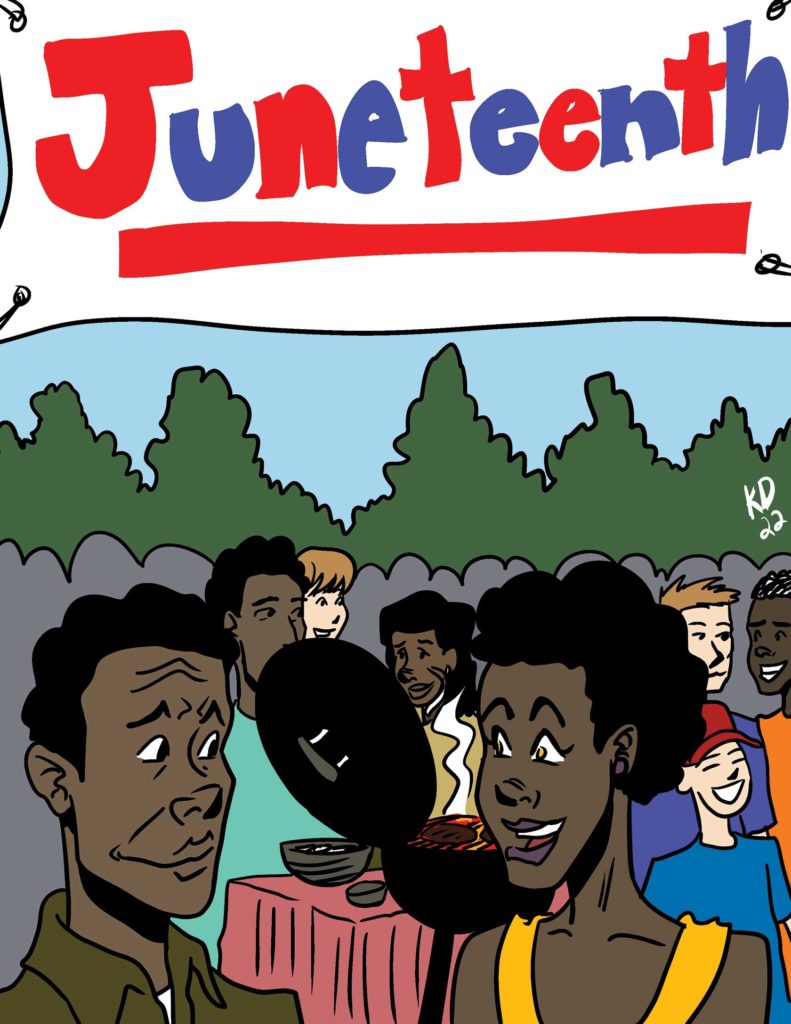
For several years, liberals and those opposed to racism have been campaigning to remove from public places the statues and plaques that honor the Confederacy. In fact, there is even a committee to propose the removal from the names of military installations those who had joined the Confederacy.
The protestors well understand that these symbols help to retain in the consciousness of young Blacks the psychological status of white supremacy. It is a wonder, then, that Blacks outside of Texas would be so supportive of the Juneteenth celebration.
Indeed, everyone should be elated to be freed from slavery. Unfortunately, it took 2½ years for Blacks to exercise the Emancipation Proclamation in Texas. This raises the question of whether the Texas manumission should become the national model for Blacks.
South Carolina, Mississippi, Florida, Alabama, Georgia, Louisiana and Texas were among the states that seceded from the Union on Feb. 8, 1861 to form the Confederacy. They demonstrated their serious intent by attacking Fort Sumter on April 12, 1861. This assault on the Union fortification was essentially the beginning of the Civil War.
When it became apparent that slaveowners were determined to establish an independent republic in the southern states, President Lincoln decided that it would be a “fit and necessary war measure” to deprive the hostile forces of reliance on slavery. On Sept. 22, 1862 he issued the Emancipation Proclamation that freed all persons held as slaves in any state in rebellion against the United States, and they “shall be thence forward and forever free.”
Slaves were unable to escape from the plantations in Texas. The state of Texas is vast, about 25 times larger than Massachusetts and 63 times bigger than the island of Jamaica. Texas was also away from the front lines of the Civil War so there were limited Union forces available to aid compliance with Lincoln’s Emancipation Proclamation.
After the Civil War was over and the Confederates had been defeated, Maj. Gen. Gordon Grainger, with more than 2,000 soldiers, landed in Galveston, Texas on June 19, 1865 to assure that Blacks would be freed from slavery. After 2 ½ years of enslavement despite President Lincoln’s proclamation, the day of freedom was certainly a time of jubilee.
Despite the enthusiasm of Black Texans on June 19, 1865, Gen. Grainger’s edict was effective only in Texas. However, a broader emancipation was underway. As the Civil War raged, President Lincoln had employed his political skills to develop a constitutional amendment that would end slavery. Since he was assassinated on April 14, 1865, Lincoln was never able to see the fulfillment of his effort.
However, on Dec. 6 just eight months after his death, 27 of the then 36 states ratified the U.S. Constitution with the 13th Amendment which states in part “neither slavery nor involuntary servitude … shall exist within the United States…” This outlawed slavery in every state. This ratification occurred just six months after Juneteenth so it was easy to believe that Gen. Grainger’s beneficence in Galveston was responsible for ending slavery everywhere.
While there were many examples of Black heroism in the Civil War, the Texas experience was not one of them. Somehow what should have been just a Texas celebration has become national. What is the merit in having Black progeny be conscious of the 2 ½ year extended servitude of Black slaves who had been freed by Lincoln’s Emancipation Proclamation?
The story of the Massachusetts 54th Regiment is far more inspiring. Black freedmen entered the Civil War to free others. And there were stories of Black seamen who pirated Confederate ships to damage shipping. The only redeeming feature of Juneteenth outside of Texas is that it is a party for the whole family.






